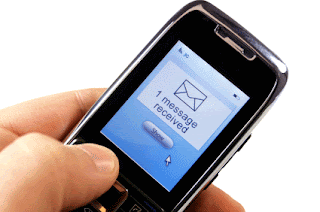In its different parts, this article aims to explain why and how luxury marketers and luxury brands and hotels should use SMS messaging to attract and retain more customers.
Knowing the current context of economic crisis keeps consumers from spending money, marketers have to innovate and be more creative. SMS messaging represents a good and effective tool since it cheaper than traditional forms of marketing and directly targets and reaches the customer. Indeed, “research shows that […] 90 percent of all messages written are sent and read within three minutes, with more than 99 percent of all text messages being read by the recipient”.

As previously said, consumers are being more receptive to customized messages received at a relevant time. It offers marketers six advantages: “relevancy”, “actionability”, “immediacy”, “ubiquity”, “simplicity”, and “versatility”.
Indeed, text messages are directly relevant to the customer’s needs and expectations and enable quick responding and dialogue. Moreover, these short messages can reach “over 70 percent of the global population” and enable marketers to communicate about everything.
SMS messaging has other benefits. For instance, it can have consumers going either on-line simply by clicking on a html link sent in the message, or drive them directly in stores to take advantage of the promotion.
However, in order to be efficient and reliable, it is important that SMS messaging contains four elements.
The first one is to have a complete and reliable customer database or a “contact distribution list” brands that hotels can obtain by having consumers to register online or fill-in surveys.
Then, determine the customers’ needs and expectations through their “account histories”. It enables the messages to be sent directly to the targeted customers.
The third step is to create a short, concise and simple SMS message (no longer than 160 characters).
And finally, the fifth element is to measure the impact of the campaign’s success.
The brands who implemented this kind of new marketing campaigns have been successful in noticing increasing sales. Therefore, we can assume that SMS messaging campaigns are effective since mobile devices are universal and immediate communication tools. However, it is essential that marketers keep in mind the various elements that are required for the campaigns to be efficient.
Nevertheless, disadvantage of this kind of marketing is that people might be resilient to fill-in online questionnaires or might just not take the time to complete them correctly. Thus, it could lead to send those consumers text messages that are not well adapted to their needs and expectations. Moreover, some consumers might simply delete the message, thinking it is advertising, without even reading it.
Key words: SMS messaging, marketing, mobile communication, luxury brands and hotels
Resource: Hutzler, K. (2012, January). Luxury Hotels: SMS As A Direct Route To Affluent Consumers. Retrieved from Tourism-Review.com: http://www.tourism-review.com/travel-tourism-magazine-marketing-through-sms-reaches-luxury-hotels-article1713
Resource: Hutzler, K. (2012, January). Luxury Hotels: SMS As A Direct Route To Affluent Consumers. Retrieved from Tourism-Review.com: http://www.tourism-review.com/travel-tourism-magazine-marketing-through-sms-reaches-luxury-hotels-article1713


No comments:
Post a Comment